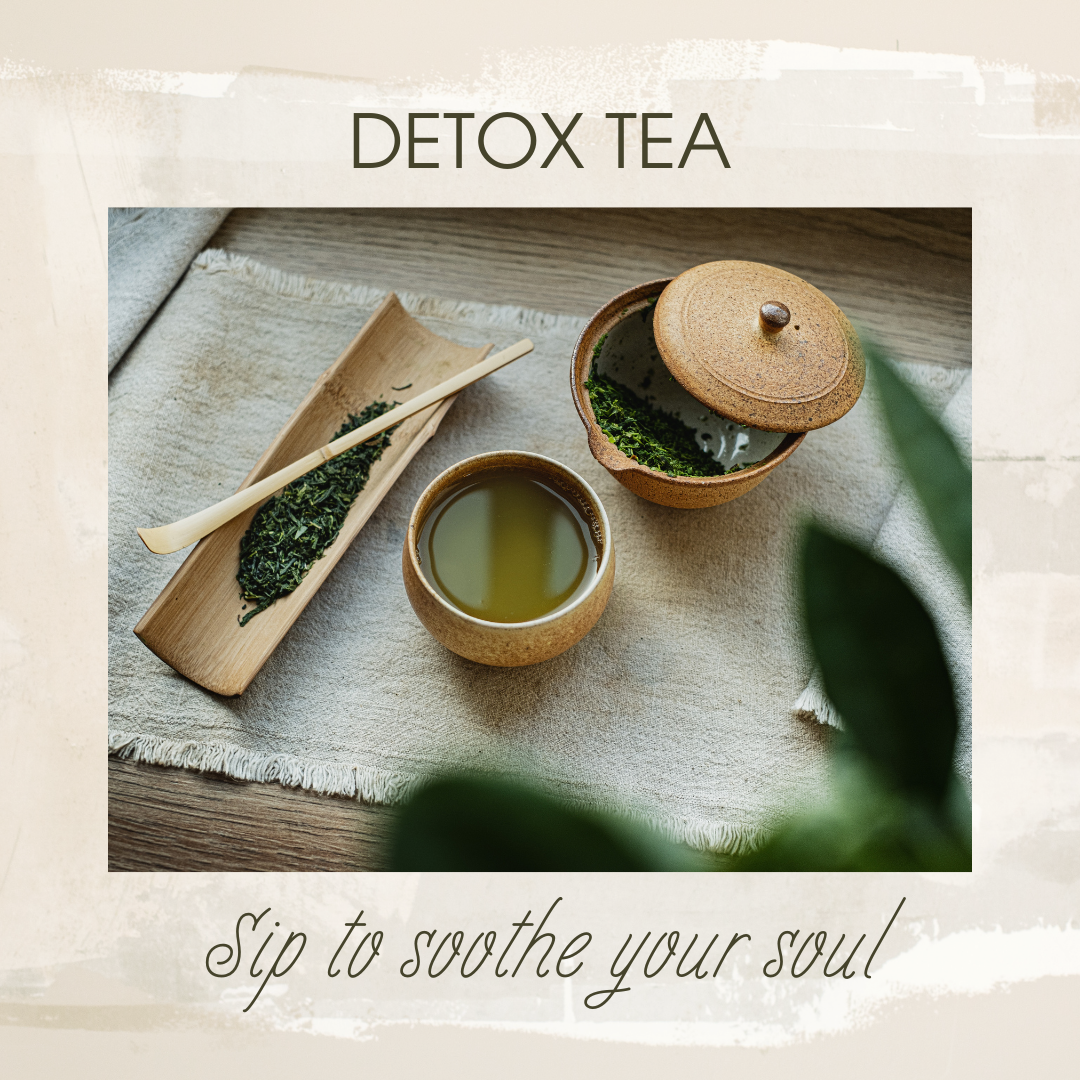Detox teas have surged in popularity as a potential aid in purging toxins from the body and bolstering overall health. These teas are infused with an array of herbs and natural ingredients. Indeed they are marketed as tools for cleansing and enhancing bodily functions. Typically, detox teas incorporate components like dandelion, ginger, green tea, and peppermint, believed to support liver function, aid digestion, and possess antioxidant properties. Proponents of detox teas suggest that these concoctions help the body rid itself of harmful substances, contributing to improved well-being.
Yet, the efficacy and safety of detox teas remain contested within the health community. While these teas might offer brief benefits like better hydration and a sense of relaxation, relying solely on them for weight loss or as a remedy for chronic health issues may prove ineffective. In fact, it could possibly lead to adverse effects. It's essential to consider detox teas as part of a broader holistic approach to wellness. Also, it is best to complement practices like balanced nutrition, mindfulness techniques such as meditation, and positive affirmations. However, it's crucial to exercise caution and seek guidance from healthcare professionals before embarking on any detox program. This is because you need to take into account individual health conditions and potential interactions with medications.
8 Common Types of Detox Tea
-
Green Tea: Known for its high antioxidant content. Particularly full of catechins, green tea is often considered a gentle detoxifier that aids in cleansing and promoting overall health.
-
Dandelion Tea: This herbal tea is believed to support liver health by promoting the production of bile. They help in aiding digestion, and potentially assist in the detoxification process.
-
Ginger Tea: Ginger contains compounds that may have anti-inflammatory and antioxidant effects. They also assist in digestion and potentially aiding the body's natural detox processes.
-
Peppermint Tea: Often praised for its digestive properties, peppermint tea may help soothe the digestive system and alleviate discomfort. Hence, they contribute indirectly to detoxification.
-
Nettle Tea: Rich in antioxidants, nettle tea has detoxifying properties that support the kidneys. It may assist in flushing out toxins from the body.
-
Milk Thistle Tea: It has potential benefits to liver health as a detox tea. Also, milk thistle tea is thought to promote liver detoxification. In turn, this helps to protect this vital organ from damage.
-
Hibiscus Tea: Packed with antioxidants, hibiscus tea is beneficial for supporting overall health and might aid in flushing out toxins due to its cleansing properties.
-
Turmeric Tea: Turmeric contains curcumin, known for its anti-inflammatory and antioxidant properties, potentially aiding in detoxification and supporting overall health.
Remember, while these teas often have detoxification and potential health benefits, it's essential to consume them as part of a balanced diet and healthy lifestyle. Always consult with a healthcare professional before incorporating any new herbs or supplements, especially if you have specific health conditions or are taking medications.
Possible Side Effects
Detox teas, despite their popularity and perceived benefits, may also pose certain side effects and considerations that individuals should be aware of:
-
Dehydration: Some detox teas contain diuretic ingredients like dandelion or caffeine, which can increase urination. While this may aid in eliminating toxins, excessive diuresis can lead to dehydration. It's crucial to drink plenty of water when consuming detox teas to maintain hydration levels.
-
Gastrointestinal Distress: Certain herbal ingredients in detox teas, such as senna or cascara sagrada, are natural laxatives that may cause abdominal discomfort, cramping, diarrhea, or an upset stomach. Prolonged use of such teas can disrupt bowel regularity.
-
Electrolyte Imbalance: Diuretic properties in some detox teas may lead to electrolyte imbalances due to increased fluid loss. This imbalance can result in symptoms like dizziness, weakness, or irregular heartbeat.
-
Interactions with Medications: Some herbal ingredients in detox teas may interact with medications, affecting their absorption or effectiveness. For instance, detox teas containing ginger or turmeric may interact with blood-thinning medications.
-
Allergic Reactions: Individuals with allergies or sensitivities to certain herbs or botanicals used in detox teas may experience allergic reactions, including rashes, itching, or swelling.
-
Dependency: Regular consumption of detox teas with laxative properties may lead to dependency or reliance on these teas for regular bowel movements, potentially disrupting natural digestive processes.
Conclusion on Detox Tea
It's essential to approach detox teas cautiously and consider them as complementary to a balanced diet and healthy lifestyle. This is rather than relying solely on them for detoxification purposes. Consulting with a healthcare professional before starting any detox regimen is advisable. This is especially for individuals with underlying health conditions, pregnant or nursing individuals, or those taking medications. You need to avoid potential side effects and complications. Ultimately, while detox teas might have temporary perks, emphasizing a well-rounded lifestyle, inclusive of a balanced diet, regular exercise, and mindfulness practices, remains paramount for sustained health and well-being.






